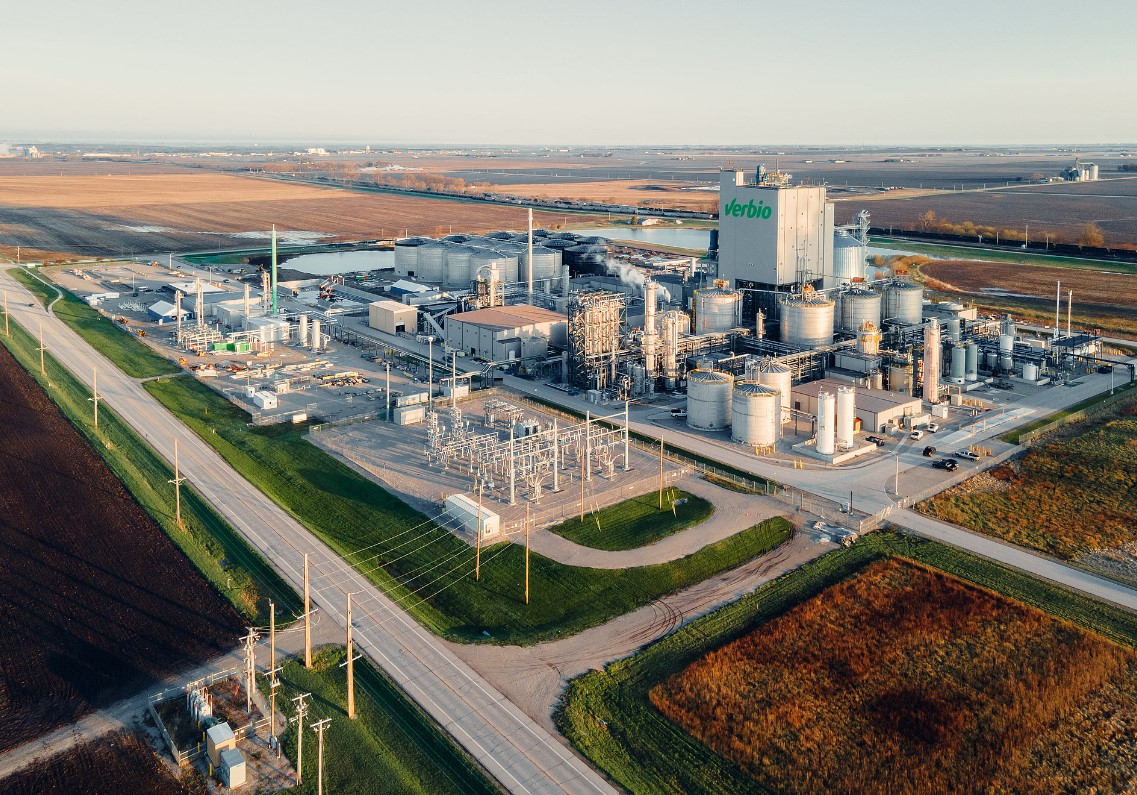This story requires a subscription
This includes a single user license.
Back in 2022, Verbio revealed plans, announcing the launch of its renewable natural gas (RNG) or biogas production facility in Nevada, Iowa, to ship bio-LNG produced in the US to Germany.
Verbio is not just a producer of biomethane from agricultural residues, but the firm is also investing in the development of CNG and LNG refueling stations in Germany.
According to a DOE filling dated July 25, Verbio North America seeks long-term and short-term multi-contract authorization for itself or as agent to export up to 51.75 Bcf total of LNG per year to any FTA or non-FTA country consistent with the “small-scale natural gas exports” rule.
Verbio requests long-term authorization for a period ending on December 31, 2050, including authorization for short-term transactions of less than two years on a non-additive basis starting on the earlier of the date of first export or five years from the date the requested authorizations are granted.
The company plans to make contractual arrangements with LNG facilities and vessels upon receipt of the authorizations requested herein and hopes to start exports within 90 days of receiving authorization.
France and Germany
According to the firm, this application seeks to “further the transition to renewable energy” by liquefying RNG and exporting it to countries that have a demand for natural gas.
Verbio’s operations in the North America include the production of RNG at its facility in Nevada, which is the first industrial scale combined bioethanol and RNG facility in North America using corn and corn stover as its feedstock, the company said.
These RNG production facilities use bacteria to digest organic waste, including cow or pig manure, crop residue and other industrial waste, into methane gas.
Besides its own production, Verbio also procures RNG from third parties for further trading as part of its overall RNG portfolio, it said.
Verbio plans to inject its RNG from all applicable sources into the integrated natural gas pipeline grid where it will be commingled with other natural gas for transportation to, and liquefaction by, LNG facilities located on the US Gulf Coast.
The company said it intends to purchase and export an equivalent amount of LNG from such facilities primarily to France and Germany, and secondarily to other European countries, Japan, South Korea, and emerging markets in the Caribbean.
Liquefaction facilities
“While Verbio has not executed any contracts to purchase or export LNG at the current time, Verbio has had discussions with several existing liquefaction facilities interested in supplying LNG to Verbio for exportation,” it said.
The company also provided a list of liquefaction facilities that it may use for use for exports.
These include Eagle LNG’s Jacksonville LNG export facility with a capacity of 1.65 million gallons of LNG per day, and the Maxville, Florida facility with a 200,000 gallons per day.
In addition, the facilities include Stabilis Energy’s George West, Texas facility with a capacity of 120,000 gallons per day, Clean Energy Pickens plant in Texas with a capacity of 100,000 gallons per day, NuBlu’s Port Allen plant in Louisiana with a capacity of 30,000 gallons per day, Universal LNG Solution’s Yoakum facility in Texas with a capacity of 300,000 gallons per day, and JAX LNG’s, Jacksonville, Florida facility with a capacity of 120,000 gallons of LNG per day.
Verbio intends primarily to purchase LNG sourced from liquefaction facilities on the shoreline and load LNG directly onto ocean-going vessels for delivery to export markets.
Alternatively, Verbio may deliver RNG to inland or shoreline liquefaction facilities and purchase and deliver LNG from such facilities in approved ISO containers to ports on the Gulf Coast where the ISO containers will be loaded onto vessels, it said.
Verbio, therefore, seeks authorization to utilize both modes of transportation, the company said.

